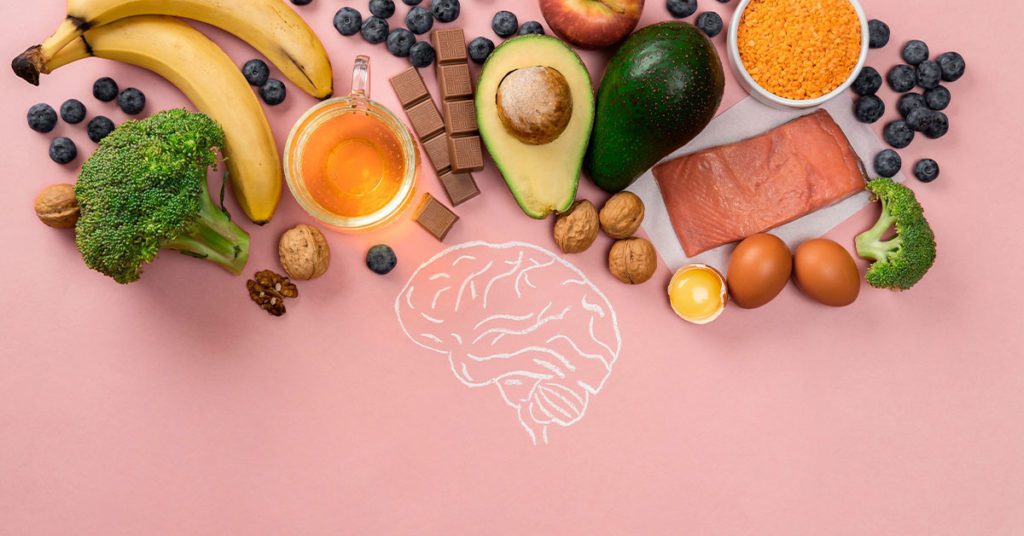

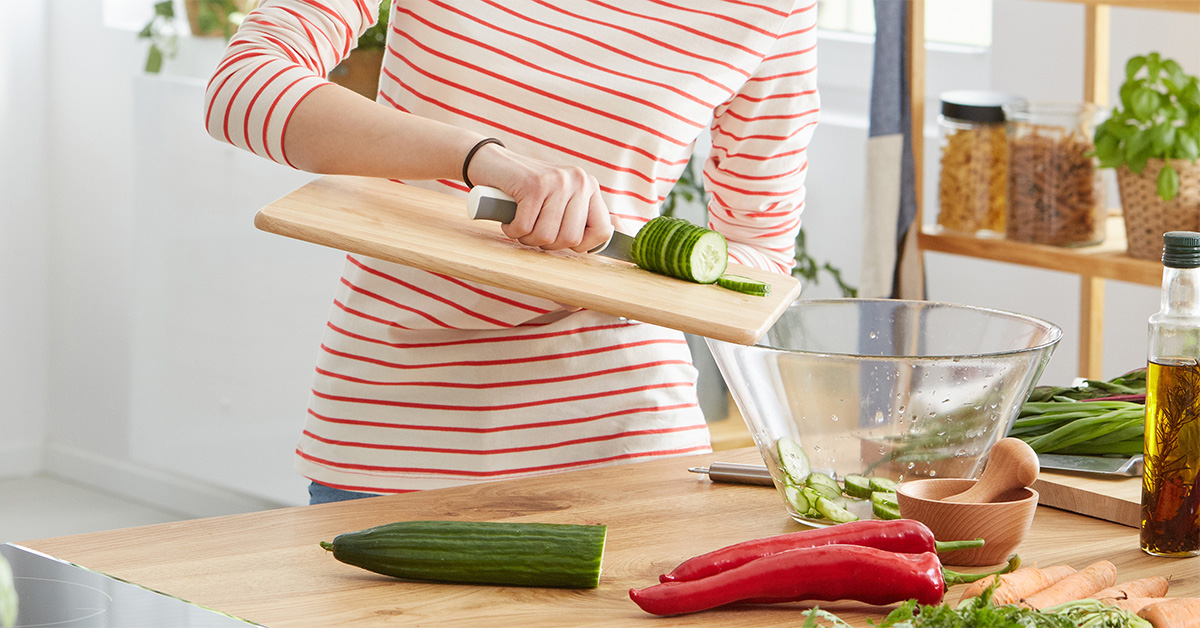



Did you know that the average person gets more work done in the fall than any other season? Our brains even work better in the fall! When the summer months wind down, people tend to focus more. And supporting your brain health with the right nutrition can make it even easier to concentrate. Busy schedules can make it difficult to eat right, but with the right recipes, meal prep doesn’t have to be tedious or stressful! Fuel your focus with these easy healthy recipes for busy weekdays.
Who needs a bowl when you’ve got spaghetti squash boats? Try this easy recipe made with a vegetable bolognese in spaghetti squash boats. Spaghetti squash comes rich in B vitamins that support memory and brain cell communication.
Step 1: Cut spaghetti squash in half. Place cut side down on baking sheet and roast in the oven at 400 degrees until tender
Step 2: Sauté zucchini, yellow squash, and mushrooms in olive oil
Step 3: Add tomato sauce, lentils, spinach, and spices to taste
Step 4: Add sauté mixture to spaghetti squash boats

So, you want to protect your brain health, but don’t know what to eat? Cook up this lentil roasted vegetable salad! The healthy recipe contains ingredients like nuts, leafy greens, and olive oil—foods that support memory and brain health.
Step 1: Chop and lightly coat mixed vegetables with olive oil, such as brussels sprouts, butternut squash, carrots, and eggplant. Pan roast until tender at 375 F
Step 2: Prepare a base of mixed greens
Step 3: Top with roasted veggies
Step 4: Top with cooked lentils
Step 5: Sprinkle with raw mixed nuts
Step 6: Top with dressing
For dressing: Combine ¼ cup tahini, 2 tbsp lemon juice, salt, and pepper
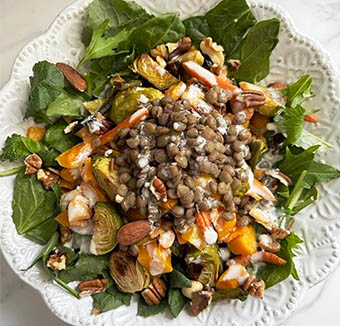

A growing body of evidence shows an important link between our gut microbiome and our mental state. To make this yogurt and berries recipe even better, go for cultured yogurt! It contains beneficial bacteria that are good for your gut and brain health.
Step 1: ¾ cup plain unsweetened cultured yogurt
Step 2: ½ cup raspberries and blueberries
Step 3: ¼ cup raw mixed nuts
Step 4: 1 tbsp of hemp seeds
Step 5: Sprinkle of dried coconut
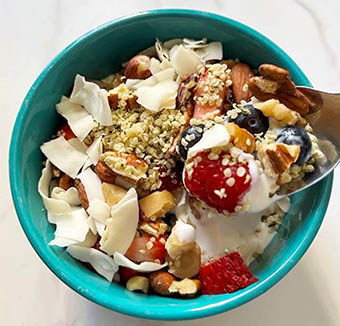

Need an easy brain-boosting recipe? You can throw this sardine and avocado salad together in just three steps! Fish is a great source of omega-3s, which can help reduce inflammation. Make sure to avoid those that tend to have high mercury levels. Instead, refer to the acronym SMASH (salmon, mackerel, anchovies, sardines, and herring) for the safest fish to eat.
Step 1: Open a tin of sardines and drain
Step 2: Add ¼ chopped avocado and 1 tbsp chopped fresh parsley
Step 3: Add a squeeze of lemon, salt, and pepper to taste
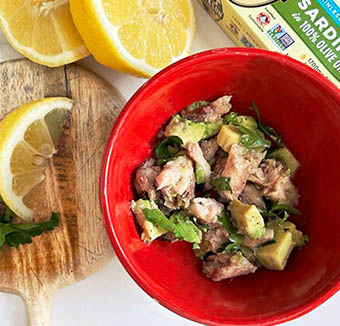

This tofu kimchi cauliflower fried rice recipe includes a healthy fat (olive oil), cauliflower rice, veggies, fermented foods (kimchi), and an egg—all brain boosting ingredients that protect memory and cognition. For easy prep, look for firm tofu in the plant-based section of your grocery store. Press excess water out between paper towels. Then chop tofu into bite sized cubes.
Step 1: Sauté frozen mixed vegetables in olive oil until warm
Step 2: Add the tofu and cauliflower rice
Step 3: Add 2 tbsp soy sauce, 1 tbsp sesame oil, and 1 tbsp rice vinegar
Step 4: Add 1/4 cup kimchi
Step 5: Add 1 chopped green onion
Step 6: Fry an egg and place on top
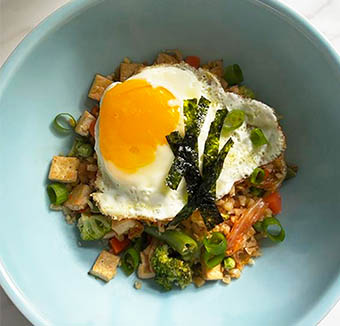

The kind of foods we eat, and when we eat them, can make a big difference to our brain health. Neurologist Dr. Dale Bredesen recommends a plant-rich, mildly ketogenic diet combined with a daily 12-hour fast, including at least three hours between the last meal of the day and when you go to bed.
What should you eat?
Want to learn more about foods that support brain health? Read about the Bredesen Diet and get nutritional guidelines to support cognition from leading neurologist, Dr. Dale Bredesen.
Remember, even when you have a lot on your plate, make sure nutritious food is on there too! Nutrition plays a big part in memory and cognition. Look for easy, healthy recipes that don’t take too much time to prepare. That way you can enjoy well-balanced meals throughout a busy week.
Take advantage of our hassle-free monthly auto-ship program to ensure that you never go a day without your favorite brain boosting NeuroQ formula. You can cancel your monthly auto-ship at any time.
As a member you can expect: